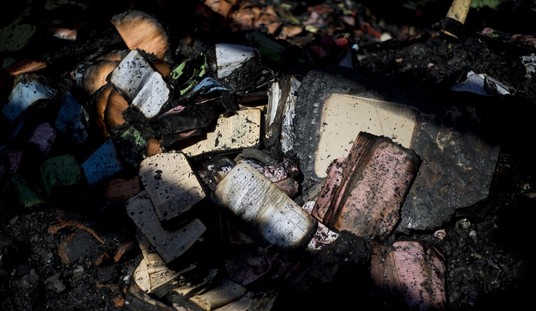Nashville, Tenn., Mayor Megan Barry called a new city law that decriminalized marijuana “a positive step forward in addressing the overly punitive treatment of marijuana possession in our state that disproportionately impacts low-income and minority residents.”
Dave Rosenberg, the city councilman who sponsored the bill, said it ran parallel to state law and would give Nashville cops a new tool to deal with people smoking pot in the Music City.
“All this bill does is give police the option of not treating someone with a little pot like a hardened criminal,” Rosenberg said. “Because when you start treating good members of our society like criminals they begin acting like criminals.”
Memphis officials felt the same way about a similar law they passed at the end of 2016 until Tennessee Attorney General Herbert H. Slatery III told both cities what they had done was illegal.
The cities wanted to leave it to the discretion of their local police officers to charge someone busted for possession of half-an-ounce or less of marijuana with either a civil citation and a $50 fine or community service.
Tennessee law makes possession of that much pot a misdemeanor punishable by a year in jail and a $2,500 fine.
Seven months after Nashville and Memphis tried to be more marijuana-friendly, they have been put in their place by the state legislature. Under legislation signed by Gov. Bill Haslam, the law of the land in Tennessee is also the law of the land in every city in the state.
Sen. Ken Yager (R) supported the legislation that blocks any municipal move to give pot smokers a pass. He pointed to the attorney general’s decision on Memphis’ marijuana ordinance. He also told the Associated Press there was no sense in allowing each municipality in Tennessee to supersede state law.
“If we’re going to have a criminal law, it ought to be enforced uniformly throughout the state,” said Yager. “No exceptions.”
Slatery said no municipality has the authority to supersede the statutes of Tennessee, the constitutions of the U.S. or the state, or “the established principles of common law.”
“In sum, the conflict-preemption principles that are well established in Tennessee’s jurisprudence prevent a municipality from enacting and enforcing an ordinance that allows a police officer to issue a municipal citation that carries a civil penalty of fifty dollars or community service for the offense of possession of one-half ounce or less of marijuana,” the AG statement read. “Such an ordinance conflicts with the provisions of the Drug Control Act and with the prosecutorial discretion and responsibilities of the district attorneys general in enforcing the Act.”
Rep. Brian Kelsey (R), who requested the AG’s opinion, was ready to translate that into layman’s language for any Memphis official who didn’t understand the legalese.
“Basically the AG has said that this has allowed city police officers to step on the toes of the local DAs,” said Kelsey.
But Memphis City Councilman Berlin Boyd told the AP that state lawmakers were acting like “bullies in the yard” by pre-empting local authority to deal with local crimes.
“It’s different legislating to farms and pastures versus legislating to an urban city,” Boyd said. “We have different issues, and they don’t deal with our issues.”
Shelby County Commissioner Van Turner took the same hardline reaction to the AG’s statement when it was released in 2016.
“These are just opinions and there’s been no court of law to render the Memphis ordinance unconstitutional,” Turner told WMC-TV in Memphis.
Gov. Haslam didn’t see it that way. As his press secretary Jennifer Donnals put it, Haslam deferred to the will of the legislature and signed the bill to decriminalize what Nashville and Memphis had decriminalized.
The legislation also prevents any other Tennessee municipality from trying to usurp state or federal drug laws.
Even though it was quickly approved, not every legislator supported the bill sponsored by House Criminal Justice Chair Rep. William Lamberth to block the softer Nashville and Memphis marijuana ordinances.
The Tennessee Black Caucus of State Legislators said the lighter marijuana statutes in Nashville and Memphis would allow people with relatively small amounts of marijuana to continue leading productive lives, without going to jail.
Hedy Weinberg, executive director of the ACLU of Tennessee, also supported Nashville’s moderate stance toward marijuana. She said that not only have thousands of people been arrested for small amounts of marijuana, but a disproportionate number of black residents have been arrested.
“These arrests have led to disastrous consequences for their lives, including the loss of job, education and housing opportunities,” said Weinberg. “This ordinance could significantly reduce the costly incarceration rate for this low-level violation, freeing law enforcement to focus on addressing violent crime and keeping our community safer.”
But Lamberth stuck by his hardline stance on local municipalities first giving local police the authority to become judge and jury and, second, to decide they could ignore state and federal law.
“You can’t allow an officer at their whim to treat two different individuals who have potentially committed the same crime in drastically different ways depending on what that officer feels like at a given time,” said Lamberth. “You just can’t have cities creating their own criminal code, willy-nilly.”









Join the conversation as a VIP Member